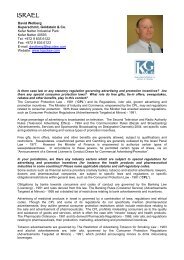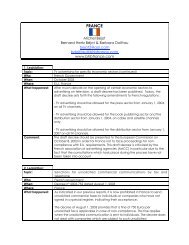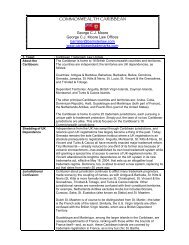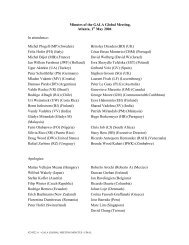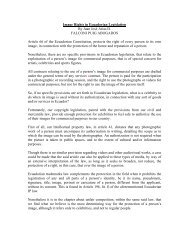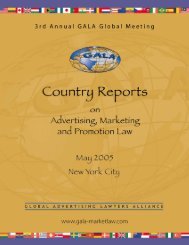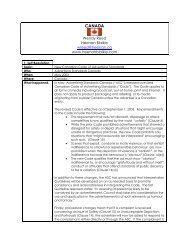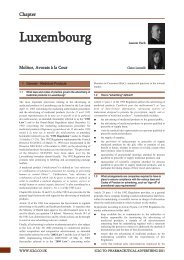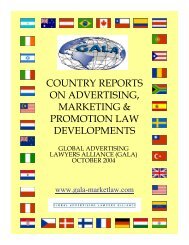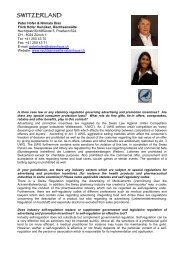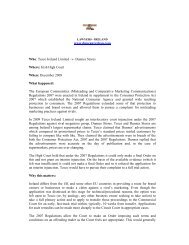International Advertising Clearance - May 2004 - GALA
International Advertising Clearance - May 2004 - GALA
International Advertising Clearance - May 2004 - GALA
Create successful ePaper yourself
Turn your PDF publications into a flip-book with our unique Google optimized e-Paper software.
A: French law recently implemented the EU Directive on comparative advertising (in<br />
2001). The main difference arising from the transposition is the removal of the obligation to<br />
inform the competitor/target about the comparative advertising campaign prior to its<br />
launch. Further, implicit advertising is now included in the notion of comparative<br />
advertising (i.e., advertisements which do not expressly name the competitor but which<br />
allow to identify it).<br />
Basically, the following requirements apply :<br />
- the ad should compare products or services that have the same purpose<br />
- the ad should be truthful and fair, it should not be misleading<br />
- the comparison should be objective<br />
- the comparison should relate to essential, significant, pertinent and verifiable<br />
characteristics of the products or services, which may include the price<br />
- the advertiser should be able to substantiate his claims<br />
Q: Is pre-existing substantiation required for claims made in an advertisement ?<br />
A: The advertiser should be able to substantiate his/her claim, within a short period of<br />
time after it is requested.<br />
Q: Are there any products or services that cannot be offered in certain media ?<br />
A: Yes, the general principle is as follows :<br />
TV : Yes : Tobacco, alcoholic beverages, prescription drugs,<br />
books, movies, press, retail distribution<br />
Radio : Yes : Tobacco, prescription drugs<br />
Internet : Yes : Tobacco, prescription drugs<br />
Print : Yes : Tobacco, prescription drugs<br />
Outdoor : Yes : Tobacco, prescription drugs<br />
Q: What is your country’s law on privacy and/or rights of publicity regarding the use of famous<br />
persons in advertising without their express permission ?<br />
A: Section 9 of the French civil code provides that “everyone has a right to the<br />
respect of his privacy” (i.e., sentimental life, sexual practices, health, family, religion, etc.).<br />
Case law is developing that celebrities (as other individuals) have a right on their image<br />
and can control the use made of their image. This rule is not limited to pictures taken in<br />
private places, and this protection also applies to the use of doubles / look-alikes which is<br />
prohibited without prior authorization of the celebrity, names and, we believe would also<br />
apply to the imitation or use of the voice of a celebrity.<br />
Q: What is your country’s law on the use of other people’s products in advertising without the<br />
product owner’s permission ?<br />
A: Promoting an offer in France by using the competitors’ trademarks is only<br />
authorized in case of (i) comparative advertising, (ii) the sale of products bearing such<br />
trademark and legitimately acquired and (iii) the sale of products that are compatible<br />
accessories of another product bearing such trademark.



